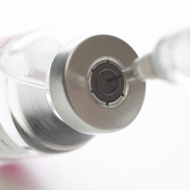Nearly a quarter of pet owners ‘overdue on vaccinations’

Despite two thirds of owners vaccinating regularly, 23 per cent had gone overdue.
Nearly a quarter of UK pet owners have gone overdue on their animal’s regular vaccinations, new figures suggest.
A survey carried out for the charity Brooke, Action for Working Horses and Donkeys, shows that 88 per cent of respondents believe vaccinations are important for animal health.
But despite two thirds of owners vaccinating regularly, 23 per cent had gone overdue, while nine per cent never vaccinated their pets.
The survey also revealed that 91 per cent of owners take their pets to the vet, and 83 per cent visit at least once a year. Meanwhile, 11 per cent of respondents said their pet does not receive any treatment.
Brooke released the figures ahead of World Vet Day (27 April), which this year highlights the importance of vaccination.
According to the charity, which specialises in the welfare of working equids in developing countries, the majority (82 per cent) of UK pet owners feel they have access to a vet when they need one. Animal owners in developing countries, however, often have little to no access to vets, pain relief or vaccinations.
To tackle these issues the charity is training local vets and animal health workers, as well as teaching owners how to prevent injuries, infection and diseases. The survey also revealed that 77 per cent of people were concerned about the welfare of these animals.
Senior manager for global animal health, Klara Saville, said: “In the communities we work in, poverty and accessibility of health services is often the root cause of animal welfare issues, with people sometimes having to choose between food for their families and treatment for their animals.
“Brooke concentrates on building up infrastructure, and training owners in simple actions people can take to prevent bad welfare. A big focus for us at the moment is veterinary education and mentoring. We mentor animal health practitioners and work with veterinary training institutions to create long term sustainable impact.”



 The latest
The latest